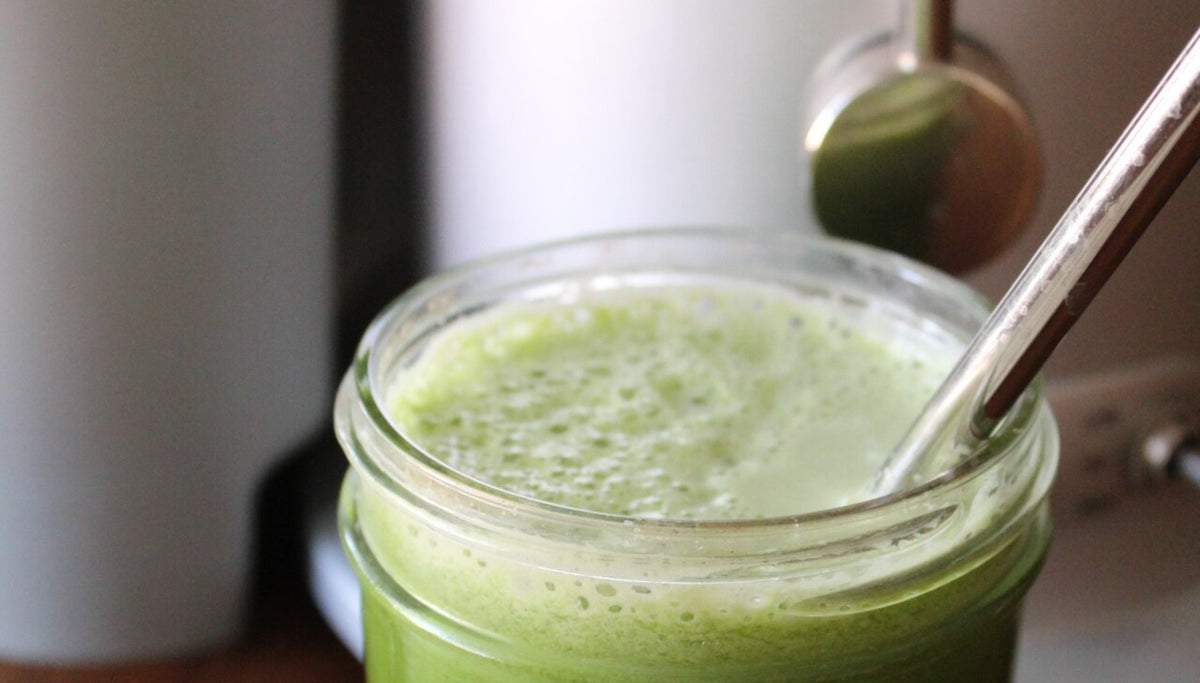Is the Celery Juice Craze Justified?

Move over, kale. There’s a new It-vegetable in town. Once relegated to being the limp leftovers on a crudités platter, celery—or celery juice, more specifically—is having a superstar moment. The benefits of celery juice are driving enormous interest. Google Trends reports a dramatic spike in searches for this veggie elixir over the last year, while on Instagram, close to 68,000 posts have been tagged with #celeryjuice.
Though the craze appears to have kicked off with Anthony William, a Los Angeles-based health guru who calls himself the Medical Medium, and the “originator of the global celery juice movement,” it’s since accumulated a following of thousands including celebrities like actress Debra Messing and rapper and entrepreneur Pharrell Williams.
Celery fans say this wonder veggie can help with everything from skin issues, inflammation, and high blood pressure to belly bloating and weight loss. Benefits are best reaped when the celery stalks are juiced and drunk on an empty stomach with no other ingredients added.
Are the Benefits of Celery Juice For Real?
But studies on the advantages of drinking celery juice are scarce, and the medical jury is still out on whether the claims of this latest juice fad are more hype than genuine health fact.
What most dietitians and other experts do agree on, though, is that this water-heavy plant does have many nutritional benefits. “Celery contains vitamins A, C, K, and folate and the minerals calcium, potassium, and magnesium among others,” says Anne L’Heureux, Head of Spartan Nutrition, a Spartan SGX coach and registered dietitian nutritionist. “So celery juice can provide us with a great source of nutritious hydration.”
Hydration, of course, is key to keeping healthy and maintaining the effective function of the body’s various systems (i.e., the brain, the heart, etc.). And while water is first in line as the go-to thirst quencher, the minerals and sugars contained in high-water content vegetables like celery (95 percent water) can sometimes hydrate you more effectively after, say, an intense workout or a long run.
Also, as L’Heureux points out, “You can extract a lot of juice from just one bunch. And since water can be boring, celery juice offers a flavored option that comes from real food versus an artificially flavored drink.”
But as for it being a fat-busting, bloat-popping super-brew, L’Heureux says: “There is no magic bullet. The fad of celery juicing may sound appealing, but the real benefits come from someone likely being be better hydrated, possibly snacking less because they are preoccupied with the goal of juicing, and filling their stomach with liquid, which helps reduce the pangs of hunger.”
But the Spartan coach and nutritionist doesn’t suggest ditching a morning glass of celery juice. What she does recommend, however, is that, “Adding in a celery juicing regimen should be part of an overall approach to hydrate adequately, move more, eat more real foods, and improve stress and sleep management. Those,” she adds, “are the real magic bullets to overall health.”
Benefits of Celery Juice: How To Cash In
Rinse one or two bunches of celery stalks (the aim is to make about 16 ounces of juice).
Run it through a juicer and drink immediately.
You can also chop the celery stalks and blend them in a high-speed blender until they have the appearance of a smoothie. Strain well and, again, drink immediately.
Can’t Stomach It on Its Own? We Hear Ya
Not everyone is going to enjoy the bitter, watery taste of celery juice. So if you plan to make this a morning staple, think about adding some other tasty water-based fruits and vegetables to make it a little more palatable while still maintaining a high nutritional content.
- Cucumber (contains: water (96 percent), calcium, potassium, magnesium, vitamin K)
- Watermelon (contains: water (92 percent), vitamin C, calcium, magnesium, potassium, sodium, beta carotene, and natural sugars)
- Strawberries (contain: water (91 percent), vitamin C, manganese, iodine, protein, fiber, and natural sugars)




